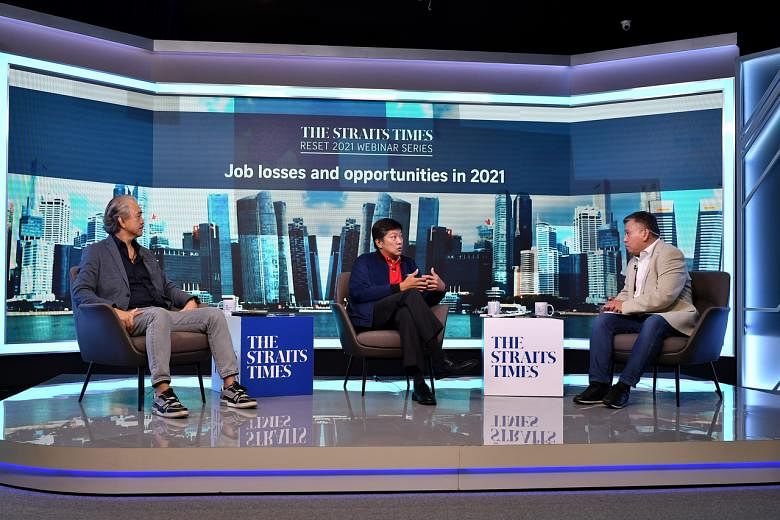SINGAPORE - Seconding workers to companies in other sectors that are faring better amid the coronavirus pandemic is one of the ways in which employers in struggling sectors can retain talent.
Speaking at The Straits Times' Reset webinar on job losses and opportunities in 2021 on Monday (Dec 21), Singapore National Employers Federation (SNEF) president Robert Yap said that in the case of employees with unique skill sets, companies may not be able to afford to employ them when they are badly hit.
However, these skills may be needed when the sector recovers, and by seconding them to another industry, firms are able to retain these skilled workers.
"Some of these sectors will definitely return, it's just a matter of time... It's just that it'd be longer than normal because they are hit quite badly," said Mr Yap, as he urged employers to think about the "surrogate concept" of secondments.
In doing so, said labour chief Ng Chee Meng, companies are not only addressing their own interests but also Singapore's broader interests by helping to preserve local capabilities.
He cited how a foreign multinational corporation has been in touch with the National Trades Union Congress (NTUC) to see how local capabilities in the depressed aerospace sector may be retained.
Mr Ng outlined how engineers and technicians, for example, could be seconded to other sectors which are currently doing better than aerospace.
However, there could be an arrangement whereby the seconded worker returns to his original employer to keep up to date with the work, and there could be other agreements between the two employers to share the worker's wage, he said.
Mr Yap and Mr Ng also spoke about "queen bee" projects, where a company that is the industry leader in a particular sector, such as retail or logistics, could take the lead on transformation programmes.
For example, an industry leader that has transformed its operations by digitalisation could spur its sub-contractor partners to do the same, and trigger widespread change. This would speed up a process which could otherwise be a laborious, top-down effort from organisations like NTUC and SNEF.
Mr Ng noted that the queen bee, while taking on a leadership role, would not be not a single, dominant player but rather one that partners with others.
However, he also acknowledged that in pushing boundaries and pursuing innovation, there is inevitably some level of uncertainty.
"It comes back to my point whether it's to employers or workers - the acceptance that the world has changed, to adapt to the new world, to adopt and to take necessary actions, and sometimes... to deal with the uncertainty and the anxiety as well," Mr Ng said.


